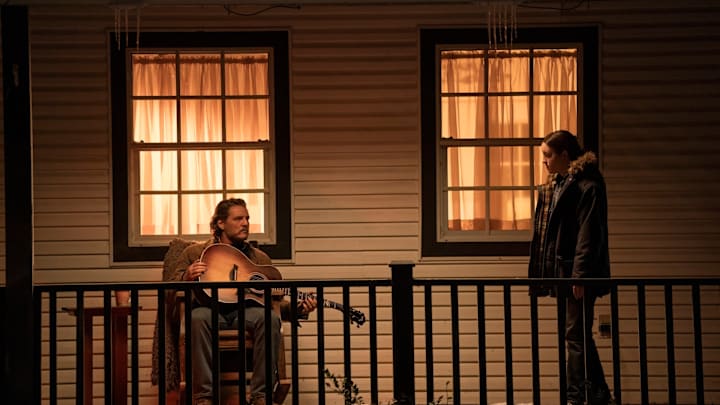As a video game adaptation, HBO’s The Last of Us presents an interesting challenge: Is it more important to remain faithful to the source material or forge a new path altogether?
Series writers Neil Druckmann, Craig Mazin, and Halley Gross have maintained this delicate balance so far with varying levels of success. Even so, the new thematic material and character development in season 2 completely floored me.
The Last of Us mines new depths from its setting
One of the biggest changes involved moving the majority of the action from Seattle, Washington, to Joel and Ellie's home in Jackson, Wyoming. Episode 2 featured a staggering action set piece in which residents defended their town against a horde of Infected. By expanding Ellie's loss of Joel into a tragedy affecting her entire community, her revenge mission felt more consequential and put her at greater odds with those she cares about.
The new focus also let The Last of Us explore Joel's protective instincts, dishonesty, and violence. This resulted in this season's most exciting development involving two new characters, Gail and Eugene Lynden.
Gail's hatred of Joel for executing her husband not only mirrored his estrangement from Ellie over his actions in season 1, but also allowed for Ellie to connect the dots in a grounded, believable way. The tension of both these conflicts culminated in a devastating porch scene between Joel and Ellie in season 2's emotional highlight.

Season 2 emphasizes the parallels between Abby and Ellie
The show's writers also ensured insight into Abby and her faction, setting up themes for season 3 early. Despite their involvement, Abby's crew viewed her revenge tear as a suicide mission. In her monologue before killing Joel, she mentioned that she was 19 when her dad died, insisted that Joel saving her life meant nothing, and even demanded a confession in language that directly paralleled Ellie's on the porch. These may be small hints, but Abby and Ellie represent two sides of the same coin.
Season 2 also provided a deeper glimpse into Abby's faction leader, Isaac Dixon (Jeffrey Wright). Unlike Jackson's council members and town meetings, Isaac handles Seattle and the WLF with an iron fist, having become the fascist he rebelled against. Much like Jesse was prepared to take the reins from Maria, and Joel hoped that Ellie would be a better person than he and his father, Isaac planned for Abby to secure a better future for Seattle as his successor. In every case, the wheel keeps turning.
Of course, none of these elements would work without a stellar cast. Catherine O'Hara and Joe Pantoliano delivered heart-wrenching, lived-in performances as aging couple Gail and Eugene. Pedro Pascal and Bella Ramsey handled their characters' new complexities and tragedies with astounding authenticity. And even in her brief moment in the spotlight, Kaitlyn Dever proved she'll carry the torch in season 3. Against all odds of translating one medium into another, HBO's The Last of Us has me genuinely excited for its future.
The Last of Us season 2 is streaming on HBO Max.
